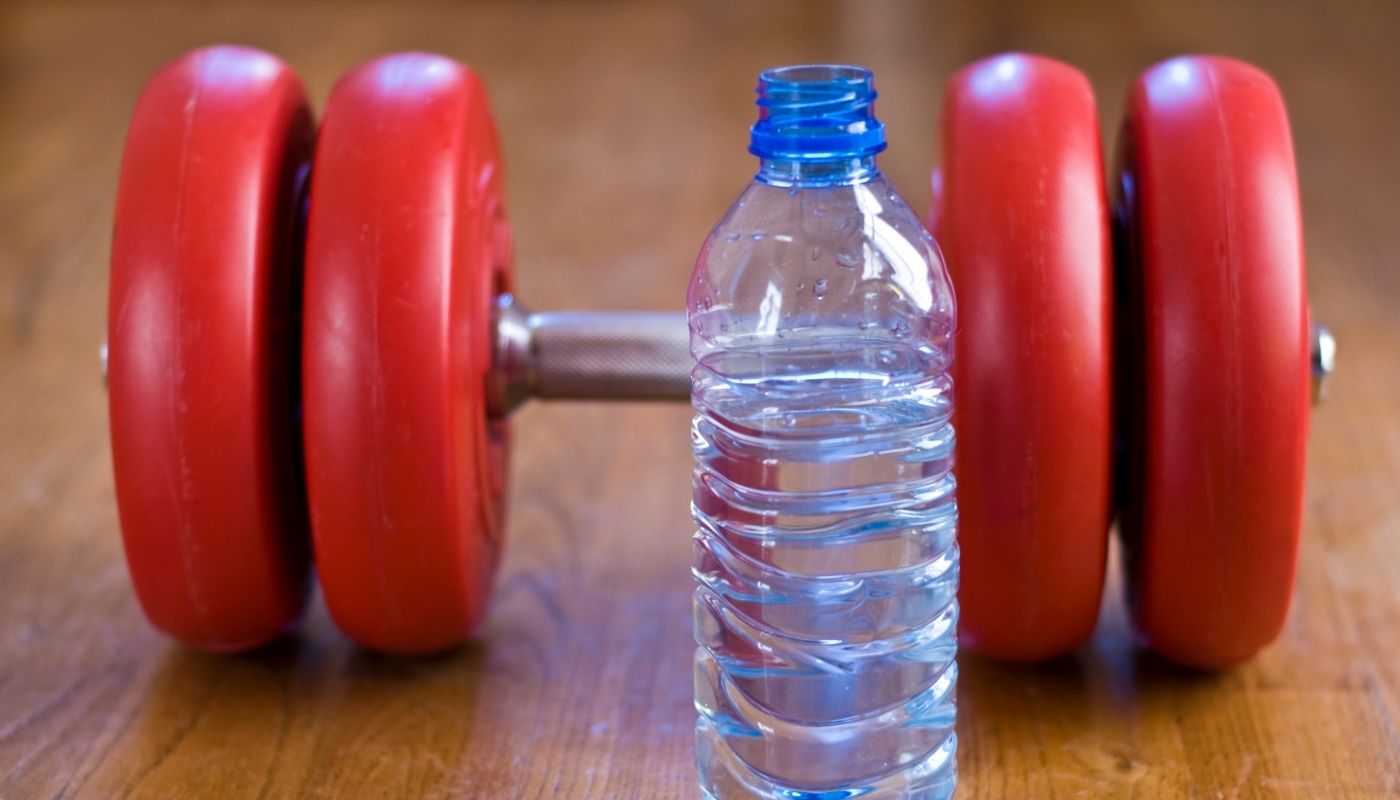
Just when you're about to give yourself a pat on the back for working out regularly, you step on the scale and discover you’ve gained a few pounds. Don’t panic. We’re here to give that “Why do I gain weight when I exercise?” thought in your head a rest.
An increase on the scale while exercising can be misleading. But this is common and temporary especially with intense exercise programs.
Why am I Gaining Weight After Working Out?
What's Water Weight?
Staying hydrated is crucial during exercise. If you’re slightly dehydrated, your body can go into survival mode and start retaining water. A person’s weight is made up of 60-90% water. The quantity of water in your system has a big influence on the number you see on the scale. Water can change your weight by as much as 10 pounds or more.

Workout Regimens
Your workouts can influence your weight, especially if it’s an intense one. But, that doesn’t mean you have gained weight. Our scale mass is a mix of blood, bone, brain, connective tissue, fat, intestinal gas, lymph, muscle, neural tract and the air we carry in our lungs. Immediately after we exercise, the percentage of mass in each of these categories shiftas much as 15%. This can be due to – hydration status, DOMS (delayed on-set muscle soreness) and even the amount of intestinal by-product or blood and urine volume.

Lose Weight with Aerobic Exercise
Not all weight loss workouts are calorie and fat burning. We are advised to mix in calorie-burning aerobic exercises such as brisk walking, biking, climbing and jogging. Performing these exercises few times a week will ensure we are burning more calories than we’re taking in.
FYI! Muscle is Heavier than Fat!
Think muscle weighs more than fat? This is a common misconception of many. According to Jeffrey A. Dolgan (a clinical exercise physiologist), “A pound of fat weighs the same as a pound of muscle, however the volume of muscle is denser than the volume of fat, and therefore heavier.”

When we begin making more dense muscle mass and reduce body fat, scale weight may increase while body fat percentage decreases. These alterations occur over weeks and months so using the scale is pointless when tracing them.
When Scales Lie on Your Progress

Weight gain even with exercise? Your scale may be deceiving you. The scale simply doesn’t tell the whole story because:
- Fluctuations always occur such as food and water intake.
- It doesn’t consider body fat.
- It has no way of telling you what you’ve lost or gained.
How to Monitor The Progress of Your Weight Loss:
If you only use a scale as your “measuring stick”, you’ll just get super down and discouraged! We advise you to use these two fail-proof methods for measuring your progress.
1. Take A Before and After Picture
Progress pictures help give you a visual record of the physical changes that is occurring in your body. By comparing your before and after photos, you can instantly see the changes in your body.
Take one every 2 weeks in the morning before taking any food or water.

2. Take Body Measurements (using a measuring tape)
- Bust - measure all the way around your bust and back on the line of your nipples
- Chest - measure directly under your breasts, as high up as possible
- Waist - (Male) measured horizontally, at the navel
- (Female) measured horizontally, at the level of minimal abdominal width - Hips – (Female only) measure around the widest part of the hipbone
- Thigh and Leg – measure around the fullest part of the thigh, and then measure the fullest part of the calf. Take measurements for both legs.
- Upper Arm – measure above your elbows, around fullest part
- Forearm – measure below your elbows, around fullest part
- Neck – measure below the larynx with the tape inclined slightly downward to the front
When to Be Concerned
If you gain weight while exercising and you don’t lose it quickly after the second week, then the culprit may be the foods you put in your mouth, not your exercise routine. You will still put on the pounds if you don’t watch what you eat.
Remember, seeing the numbers on the scale go up after working out doesn’t necessarily mean you are gaining weight. Gauging weight change is best done by taking body measurements and progress pictures. These will give you more satisfaction and assurance that all your efforts to lose weight aren't put to waste.
Did you find this ideas helpful tool for people like you who are exercising and trying to lose weight?
Feel free to share on Twitter or Facebook by using the super-easy share buttons below!





